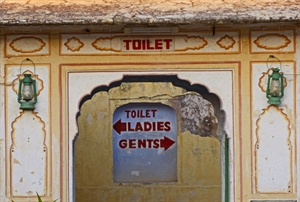Not every nation has the privilege of clean, safe drinking water on tap. So travelers need to be aware of the risks from unsafe water.
Drinking or swallowing unsafe water can expose you the pathogens (bacteria, viruses and parasites) that cause the following diseases:
- cholera
- cryptosporidiosis
- giardia
- hepatitis A
- polio
- salmonella food poisoning
Some of these diseases can affect you for the rest of your life, while others will ruin your vacation and may require you to have time off work when you return.
So it is well worth taking steps to ensure you have safe water available for drinking and cleaning your teeth. And all travelers should avoid swallowing unsafe water while washing themselves or swimming.
You can use the Centers for Disease Control resources to educate yourself about healthy water.
Is the water at my destination safe to drink?
There is no single reliable resource that will tell you whether you can drink the water at your destination. If the country you are visiting has a generally poor infrastructure and most people seem to be drinking bottled water, you should assume that tap water is unsafe to drink. It is worth asking your hosts or accommodation manager for guidance about drinking water, too.
What water at my destination is definitely safe to drink?
If you have doubts about the tap water, it’s best to treat it before drinking. Here are some options:
- halogens
- boiling
- filtration
- UV radiation
- salt electrolysis
You can buy equipment to treat water at outdoor shops in the US. Be sure to bring a couple of water bottles per person, and make sure you have some way of cleaning them.
Another option is to drink only factory-sealed bottled water. But this may create plastic or glass waste and it can put pressure on local supply and waste chains.
Are there vaccines against water-borne diseases?
Travel clinics can provide vaccination against water-borne diseases such as:
- cholera
- polio
- typhoid
- hepatitis A
Vaccines give your immune system support in dealing with the pathogens (bacteria and viruses) that cause these water-borne diseases. It’s important to remember, however, that no vaccine can give 100% protection from a disease, so you need to support the vaccine’s work through your own choices. Also, not every water-borne disease has a vaccine. For example, we can’t vaccinate you against giardia or cryptosporidiosis.
Be sure to make an appointment with a travel health clinic six to eight weeks before you travel. This will ensure you have all the shots you need for you trip, and that they have had time to take effect.


Book Online